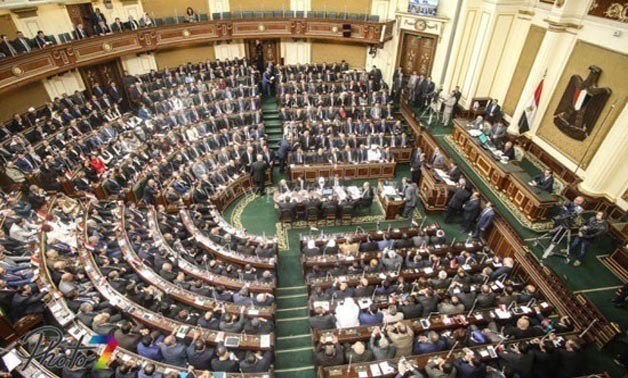
Egypt's House of Representatives - File Photo
CAIRO – 9 November 2017: The Egyptian House of Representatives chaired by Ali Abdel Aal approved Wednesday the Trade Union Organization’s draft law.
The draft law stipulates that the trade union organizations that were established and formed by law shall retain their legal personality, retain all their property and continue to exercise their competences in order to achieve their objectives in accordance with the provisions of the law and its regulations.
The executive regulations of this law shall determine the rules, procedures, and dates specified for the conciliation of the trade union organizations, provided that they do not exceed 60 days, starting from its implementation date.
According to the draft law, the trade union shall be composed of at least 15 trade union committees with a membership of at least 20 thousand workers.
The member of the of the trade union organization shall not be less than 15 years of age and not an employer in any commercial, industrial, agricultural or service activity.
The law also defines the worker as a person who works for a wage with an employer under his direction or supervision, whether his work is permanent, temporary, accidental or seasonal and whether he works for himself or for others in a trade or occupation.
The trade union organization is defined in the law as a collective trade union that has been formed and has acquired its legal personality in accordance with the law. It also defines the trade union as an organization that has retained that personality as mentioned in the articles of the law, or that is established and acquired its legal personality in accordance with the provisions of this law.
Earlier, the parliament's Manpower Committee held a meeting on October 27 to discuss the draft law, witnessing a debate between the members of the committee, their leader Gibali El-Maraghi, the legal advisor of the General Federation of Egyptian Trade Unions Hosni Saad and representatives from the Ministry of Manpower.
The debate ended with the cancellation of the nationality requirement for acquiring a membership in the union.
The condition that states that a member should not be sentenced to a criminal penalty before joining the union was cancelled, answering the voices that said that the draft law includes three penalties restricting liberty by imprisonment.
Maraghi insisted on the condition of punishing workers who go beyond the rights of colleagues, stressing that these conditions aim to establish the rules of respect that help stabilize the workplace.
Regarding the age of the members, Saad said that the labor law and social insurance law set the age of retirement to terminate the worker's relationship with the employer or the company, but the situation is different when it comes to the trade union law.
“We will not deprive anyone from being a member in the union just because he reaches the age of 60,” he added.
He demanded that the law should include articles that state that the union should not have the authority to deprive members who reach the age of retirement from membership.
Comments
Leave a Comment